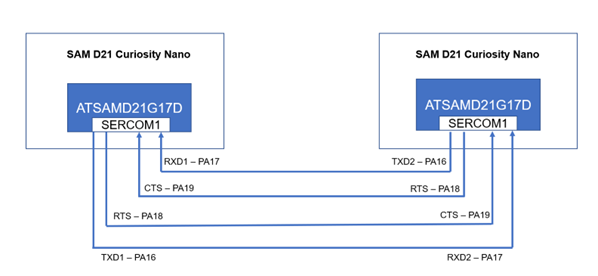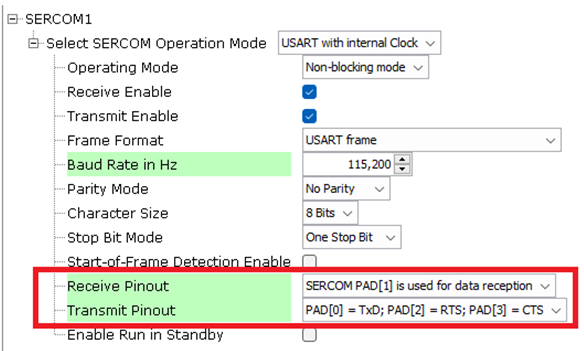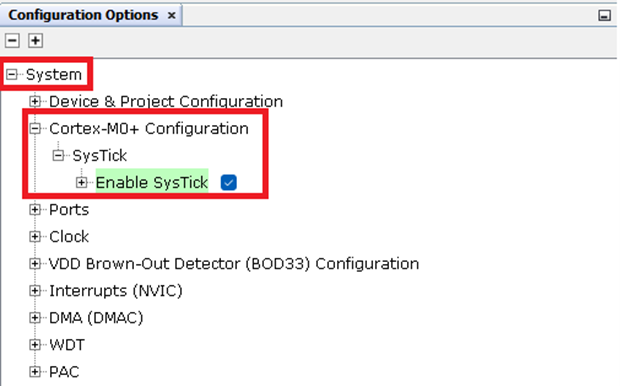5.4.1 SAM D21 Curiosity Nano Evaluation Kit
Two SAM D21 Curiosity Nano Evaluation Kit are connected to each other by SERCOM USART lines (TxD, RxD, RTS, and CTS), and connected to the PC terminal through EDBG port.

In this application, only extension SERCOM1 will be used. In this demonstration the defined data 0xAA will be sent by both the SAM D21 Curiosity Nano boards with handshaking protocol.
This section is similar to the Basic Configuration, but with additional configuration of the hardware flow control signal lines and some modifications in the code execution. This section will only address the changes.
Users need to follow these steps outlined for the basic configuration of the SAM D21 Curiosity Nano Evaluation Kit.
- To add and configure MPLAB Harmony components using the MCC, see SAM D21 Curiosity Nano Evaluation Kit.
- Click and expand SERCOM1 and
then configure the SERCOM1 Peripheral Library block as shown below:
Figure 5-47. SERCOM1 Configuration 
- Configure the pin configuration as shown below:
Figure 5-48. Pin Configuration 
- In the MCC Configuration
Options, click and expand System, and then select Enable
SysTick.
Figure 5-49. Enable the Systick Timer 
- After configuring the peripherals, click Generate under Project Resources as shown in Step 9 of the SAM D21 Curiosity Nano Evaluation Kit section.
